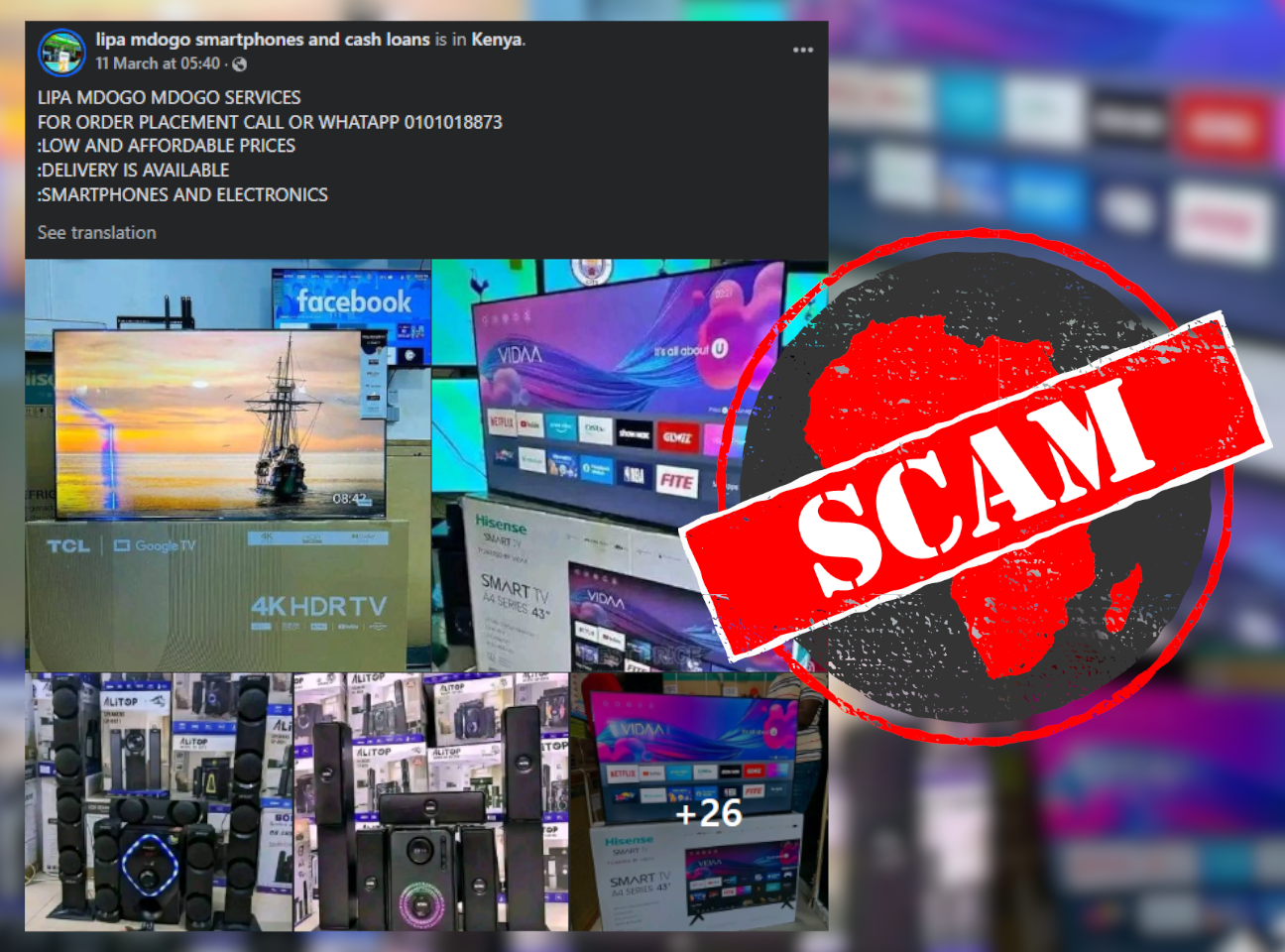IN SHORT: Many Facebook pages are claiming to offer products to Kenyans, to be paid off in instalments. But beware and be on the lookout for tell-tale signs of a scam.
The Facebook pages lipa mdogo smartphones and cash loans, Lipa mdogo mdogo loan motorbike call/Whatsapp 0788781171 and LIPA MDOGO MDOGO KENYA are offering easy payment terms for products that might be expensive to purchase in cash for some people.
All the pages use the phrase “lipa mdogo mdogo” in their name and adverts. Lipa Mdogo Mdogo – Swahili for “pay in instalments” – is a service by Safaricom, Kenya’s largest telecoms company, in partnership with Google. It makes it possible to buy a smartphone through a daily instalment plan.
The pages appear to offer smartphones, motorbikes and household goods for sale.
One of the page’s posts, dated 11 March 2024, reads: “LIPA MDOGO MDOGO SERVICES FOR ORDER PLACEMENT CALL OR WHATAPP 0101018873: LOW AND AFFORDABLE PRICES: DELIVERY IS AVAILABLE: SMARTPHONES AND ELECTRONICS.”
The posts have attracted hundreds of engagements.
They have been posted here, here, here, here, here, here, here, here, here, here, here, here and here.
But are the pages and the offers legit? We checked.

Scam offers
There are several clues that the pages and their advertised offers are not legit.
We noticed that the first two pages have no branding. This means they lack key elements, such as a logo and colours, that would normally identify a legitimate business.
The remaining one has a profile picture with Lipa Later branding. Lipa Later is a financial institution in Kenya that offers consumer credit and e-commerce solutions. But Lipa Later has its own Facebook page that can be accessed from its website, so this Facebook page is impersonating the business.
While established credit institutions normally have well-functioning websites or apps where customers can apply for products and communicate directly with the banks, these Facebook pages have neither. This is a clear red flag.
The pages rely on unbranded photos to advertise the offers. Reputable institutions tend to have professionally designed graphics that use the company’s logo and colours. This helps to identify them as legitimate businesses.
All signs point to fake pages with scam offers.
Republish our content for free
For publishers: what to do if your post is rated false
A fact-checker has rated your Facebook or Instagram post as “false”, “altered”, “partly false” or “missing context”. This could have serious consequences. What do you do?
Click on our guide for the steps you should follow.
Publishers guideAfrica Check teams up with Facebook
Africa Check is a partner in Meta's third-party fact-checking programme to help stop the spread of false information on social media.
The content we rate as “false” will be downgraded on Facebook and Instagram. This means fewer people will see it.
You can also help identify false information on Facebook. This guide explains how.




Add new comment